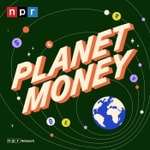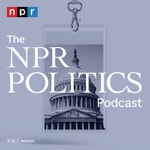The Experiment – Détails, épisodes et analyse
Détails du podcast
Informations techniques et générales issues du flux RSS du podcast.

The Experiment
The Atlantic and WNYC Studios
Fréquence : 1 épisode/26j. Total Éps: 60

Classements récents
Dernières positions dans les classements Apple Podcasts et Spotify.
Apple Podcasts
🇨🇦 Canada - documentary
18/07/2025#87🇨🇦 Canada - documentary
15/07/2025#83🇨🇦 Canada - documentary
20/06/2025#90🇨🇦 Canada - documentary
14/04/2025#77🇨🇦 Canada - documentary
13/04/2025#71🇨🇦 Canada - documentary
30/03/2025#98🇺🇸 États-Unis - documentary
30/03/2025#97🇫🇷 France - documentary
05/03/2025#68🇩🇪 Allemagne - documentary
16/02/2025#94🇨🇦 Canada - documentary
14/11/2024#99
Spotify
Aucun classement récent disponible
Liens partagés entre épisodes et podcasts
Liens présents dans les descriptions d'épisodes et autres podcasts les utilisant également.
See all- https://www.thisamericanlife.org/
81 partages
- http://tastymorsels.org
39 partages
- https://www.oyez.org/
36 partages
Qualité et score du flux RSS
Évaluation technique de la qualité et de la structure du flux RSS.
See allScore global : 73%
Historique des publications
Répartition mensuelle des publications d'épisodes au fil des années.
The Experiment Introduces More Perfect
Épisode 58
vendredi 12 mai 2023 • Durée 08:18
Host Julia Longoria is back with a new season of More Perfect, from WNYC Studios.
We’re taught the Supreme Court was designed to be above the fray of politics. But at a time when partisanship seeps into every pore of American life, are the nine justices living up to that promise? More Perfect is a guide to the current moment on the Court. The show brings the highest court of the land down to earth, telling the human dramas at the Court that shape so many aspects of American life — from our religious freedom to our artistic expression, from our reproductive choices to our voice in democracy.
In the season trailer, Julia returns to the place where she first fell in love with SCOTUS: high school.
Subscribe to the podcast here.
Supreme Court archival audio comes from Oyez®, a free law project by Justia and the Legal Information Institute of Cornell Law School.
Support for More Perfect is provided in part by The Smart Family Fund.
Follow the show on Instagram and Facebook @moreperfectpodcast, and Twitter @moreperfect.
The End of This Experiment
Épisode 57
jeudi 2 juin 2022 • Durée 14:49
The Experiment is coming to an end. For our final episode, we contemplate our strange, sometimes beautiful, often frustrating country. We go back to some of the people we met and fell in love with while making the show, and ask them how their version of the American experiment is going.
A transcript of this episode is available.
Be part of The Experiment. Use the hashtag #TheExperimentPodcast, or write to us at [email protected].
This episode was produced by Alyssa Edes, Gabrielle Berbey, Julia Longoria, and Tracie Hunt, with editing by Michael May and Emily Botein. Fact-check by Sam Fentress. Sound design by David Herman. Transcription by Caleb Codding.
Music by Water Feature (“Richard III (Duke of Gloucester)”), Naran Ratan (“Forever time Journeys”), H Hunt (“C U Soon”), Parish Council (“Heatherside Stores” and “Durdle Door”), and Ob (“Ghyll”), provided by Tasty Morsels.
Who Belongs in the Cherokee Nation?
Épisode 48
jeudi 7 avril 2022 • Durée 38:28
From the time she was a little girl, Marilyn Vann knew she was Black and she was Cherokee. But when she applied for citizenship in the Cherokee Nation as an adult, she was denied. What followed was a journey into a dark part of Cherokee history that not many people know about and even fewer understand: Vann and her family are descended from people who were enslaved by the Cherokee Nation. They were freed after the Civil War, but that wasn’t the end of their struggle. In 1866, the Cherokee Nation made a promise—a promise of citizenship for these “freedmen” and their descendants. But in the years that followed, that promise would be at the center of a battle between civil rights and sovereignty.
Related Viewing: Will Congress Fulfill a 184-Year-Old Promise?
A transcript of this episode will soon be made available. Please check back.
Be part of The Experiment. Use the hashtag #TheExperimentPodcast, or write to us at [email protected].
This episode was produced by Tracie Hunte, with help from Gabrielle Berbey and Alyssa Edes. Editing by Jenny Lawton and Julia Longoria. Fact-check by Will Gordon. Sound design by Joe Plourde with additional engineering by Jen Munson. Transcription by Caleb Codding. Special thanks to Rebecca Nagle, Bryan Pollard, Sterling Cosper, and Gregory Smithers.
Music by Parish Council (“Marmalade Day”), Keyboard (“Freedom of Movement,” “Over the Moon,” “Ojima,” “Being Darrell,” and “Only One”), and Water Feature (“Richard III (Duke of Gloucester”). Additional music by Alexander Overington. Additional audio from Bloomberg, Global News, and Fox News.
The Helen Keller Exorcism
Épisode 47
jeudi 24 mars 2022 • Durée 01:04:45
The fantasy writer Elsa Sjunneson has been haunted by Helen Keller for nearly her entire life. Elsa is Deafblind, and growing up, she couldn’t escape the constant comparisons. Then, a year ago, an online conspiracy theory claiming that Keller was a fraud exploded on TikTok, and suddenly, Sjunneson found herself drawing her sword and jumping to Keller’s defense, setting off a chain of events that would bring her closer to the disability icon than she’d ever dreamed she would be. For more than a year, Sjunneson, Lulu Miller, and the Radiolab team dug through primary sources, talked with experts, even visited Keller’s birthplace, Ivy Green, and discovered that the real story of Helen Keller is far more complicated, mysterious, and confounding than the simple myth of a young deaf-blind girl rescued by her teacher.
This story originally ran on Radiolab.
Further reading: “The Three Things Helen Keller Wished She Could See,” “Helen Keller’s Depression-Era Business Advice: ‘Put Your Husband in the Kitchen’”
A transcript of this episode is available in text and braille-ready format. An ASL translation of the episode can be viewed here.
Be part of The Experiment. Use the hashtag #TheExperimentPodcast, or write to us at [email protected].
An Engineer Tries to Build His Way Out of Tragedy
Épisode 46
jeudi 17 mars 2022 • Durée 27:54
James Sulzer has always loved building things. As a rehabilitation engineer, he spent years creating devices that he hoped would help patients recover from serious brain trauma such as strokes. And he believed strongly in the potential of rehab technology—that with the right robot, he could relieve a whole array of brain injuries.
But then, one spring day in 2020, there was a horrible accident. And suddenly James had to apply everything he knew about science and rehabilitation to help fix his own family. The Atlantic senior editor Daniel Engber spent months talking to James, following him as he used his scientific knowledge to try to find meaning in tragedy.
Further reading: “A Peer-Reviewed Portrait of Suffering”
A transcript of this episode is available.
Apply for The Experiment’s summer internship. Applications will be accepted through March 25, 2022.
Be part of The Experiment. Use the hashtag #TheExperimentPodcast, or write to us at [email protected].
This episode was produced by Peter Bresnan with help from Julia Longoria and Alyssa Edes. Editing by Emily Botein. Reporting by Daniel Engber.
Fact-check by Yvonne Rolzhausen. Sound design by Joe Plourde. Transcription by Caleb Codding.
One American Family’s Debt to Ukraine
Épisode 45
jeudi 10 mars 2022 • Durée 36:20
As Putin invaded Ukraine last month, the Atlantic writer Franklin Foer found the Russian leader’s justification for violence uncanny. Putin referred to the “Nazification” of Ukraine—a distortion of history at best. But Franklin was told a similar story his whole life from his grandmother. This week, The Experiment tells the story of the Holocaust survivor Ethel Kaplan, and traces Franklin Foer’s own journey—how he once came to believe Putin’s myth, and his journey to Ukraine to debunk it.
Further reading: “It’s Not ‘The’ Ukraine,” I Want You to Know We’re Still Here: A Post-Holocaust Memoir.
A transcript of this episode is available.
If you or someone you know is considering suicide or self-harm, please get help. The National Suicide Prevention Lifeline is 800-273-8255. And if you’re outside the U.S., you can visit findahelpline.com to find resources for your country.
Be part of The Experiment. Use the hashtag #TheExperimentPodcast, or write to us at [email protected].
This episode was produced by Salman Ahad Khan and Julia Longoria, with editing by Emily Botein. Reporting by Franklin Foer and Esther Foer. Fact-check by Sam Fentress. Sound design by Joe Plourde. Transcription by Caleb Codding. Special thanks to Andy Lanset and Roberto De La Noval.
Just Put Some Vicks on It
Épisode 44
jeudi 24 février 2022 • Durée 27:21
The Experiment host Julia Longoria has always had a special relationship with Vicks Vaporub—the scent transports her right back to childhood, to days in bed with the flu at her grandmother’s house in South Florida. Julia and her cousins all knew not to tell grandma when they were sick, or they’d risk being slathered with “Vickicito.”
Julia never had a reason to wonder why grandma loved Vicks so much, but this week’s episode reveals that grandma’s love for the product is deeper than Julia imagined. And while investigating grandma’s (and the world’s) Vicks obsession, Julia is pulled into her family’s past, back to Cuba, before the revolution.
This story originally aired on Only Human, a show about health that we all can relate to. Because every body has a story.
Be part of The Experiment. Use the hashtag #TheExperimentPodcast, or write to us at [email protected].
El Sueño de SPAM
Épisode 43
jeudi 17 février 2022 • Durée 47:41
Who are the people who make modern-day SPAM possible? You can find clues on the streets of downtown Austin, Minnesota. On weekend nights, across the street from the SPAM Museum, a Latin dance club fills with Spanish-speaking patrons. A taco truck is parked outside the Austin Labor Center. There’s a Sudanese market and an Asian food store. A new generation of workers has flooded the town for the chance to package some of America’s most iconic meat, and for many the town is a model of the American dream. But soon a mysterious disease spreads through the slaughterhouse where SPAM is made, complicating this idyllic picture of new immigrants in the American heartland.
A transcript of this episode is available.
This episode is the last in a new three-part miniseries from The Experiment—“SPAM: How the American Dream Got Canned.”
Be part of The Experiment. Use the hashtag #TheExperimentPodcast, or write to us at [email protected].
This episode was produced by Gabrielle Berbey and Julia Longoria. Editing by Kelly Prime, Emily Botein, and Katherine Wells, with help from Scott Stossel. Special thanks to Alina Kulman.
Fact-check by Will Gordon. Sound design by David Herman with additional engineering by Joe Plourde. Transcription by Caleb Codding.
This episode was produced by Gabrielle Berbey and Julia Longoria. Editing by Kelly Prime, Emily Botein, and Katherine Wells, with help from Scott Stossel. Special thanks to Alina Kulman.
Fact-check by Will Gordon. Sound design by David Herman with additional engineering by Joe Plourde. Transcription by Caleb Codding.
Music by Parish Council (“If of As,” “Socks Before Trousers,” “St. Peter Port/Wiltshire/Cooking Leeks,” and “Mopping”), Keyboard (“Freedom of Movement”), Column (“Quiet Song” and “Sensuela”), Water Feature (“Richard III (Duke of Gloucester)”), Laurie Bird (“Detail Wash”), and H Hunt (“Journeys”), provided by Tasty Morsels. Additional music by Alexander Overington. Additional audio from United Newsreel, PBS, and NBC.
Cram Your SPAM
Épisode 42
jeudi 10 février 2022 • Durée 46:00
SPAM is at the center of one of the longest and most contentious labor battles in U.S. history. In 1985, workers at the Hormel Foods plant in Austin, Minnesota, went on strike, demanding better working conditions and stable wages. Generations of meatpackers had worked at the plant, some for most of their lives—and that gruesome, difficult work afforded them a sustainable, middle-class life. So when that way of life was threatened, they fought back. SPAM boycotts spread to cities and towns around the world. The strike went on for almost two years, pit neighbor against neighbor, and turned violent; the National Guard was called in to protect those who crossed the picket line. In the end, the strike is a Rorschach test: either a lesson in what is possible when workers unite, or a cautionary tale about biting the SPAM that feeds.
This episode is the second in a new three-part miniseries from The Experiment—“SPAM: How the American Dream Got Canned.”
A transcript of this episode is available.
Be part of The Experiment. Use the hashtag #TheExperimentPodcast, or write to us at [email protected].
This episode was produced by Gabrielle Berbey and Julia Longoria. Editing by Kelly Prime, Emily Botein, and Katherine Wells with help from Jenny Lawton and Scott Stossel. Fact-check by Michelle Ciarrocca. Sound design by David Herman with additional engineering by Joe Plourde. Transcription by Caleb Codding. Special thanks to Peter Rachleff and Philip Dawkins.
Music by R Mccarthy (“Maria, Just,” “Big Game,” “Fine,” and “Melodi 2”), Parish Council (“Museum Weather” and “Marmalade Day”), Column (“「THE ART OF FUN」 (Raj)”), and Keyboard (“Ojima,” “Only One,” and “World View”); provided by Tasty Morsels. Additional music by Alexander Overington. Additional audio from CBS, CNBC (Clip 1, Clip 2, and Clip 3), NBC, Al Jazeera, Reagan Foundation, WCCO-TV, PBS (Clip 1, Clip 2, Clip 3, Clip 4, Clip 5, Clip 6, Clip 7, and Clip 8), and New Jersey Network.
Uncle SPAM
Épisode 41
jeudi 3 février 2022 • Durée 26:06
During World War II, wherever American troops spread democracy, they left the canned meat known as SPAM in its wake. When American GIs landed overseas, they often tossed cans of SPAM out of trucks to the hungry people they sought to liberate. That’s how producer Gabrielle Berbey’s grandfather first came to know and love SPAM as a kid in the Philippines. But 80 years later, SPAM no longer feels American. It is now a staple Filipino food: a beloved emblem of Filipino identity. Gabrielle sets out on a journey to understand how SPAM made its way into the hearts of generations of Pacific Islanders, and ends up opening a SPAM can of worms.
This episode is the first in a new three-part miniseries from The Experiment—“SPAM: How the American Dream Got Canned.”
A transcript of this episode is available.
Be part of The Experiment. Use the hashtag #TheExperimentPodcast, or write to us at [email protected].
This episode was produced by Gabrielle Berbey and Julia Longoria with help from Peter Bresnan and Alina Kulman. Editing by Kelly Prime, with help from Emily Botein, Jenny Lawton, Scott Stossel, and Katherine Wells. Fact-check by William Brennan and Michelle Ciarrocca. Sound design by David Herman with additional engineering by Joe Plourde. Transcription by Caleb Codding.
This episode was produced by Gabrielle Berbey and Julia Longoria with help from Peter Bresnan and Alina Kulman. Editing by Kelly Prime, with help from Emily Botein, Jenny Lawton, Scott Stossel, and Katherine Wells. Fact-check by William Brennan and Michelle Ciarrocca. Sound design by David Herman with additional engineering by Joe Plourde. Transcription by Caleb Codding.
Music by Parish Council (“A Painting of a Frog” and “The Grey Around It”), Keyboard (“More Shingles”), Ob (“Mog”), and Laurie Bird (“Jussa Trip”) provided by Tasty Morsels. Additional music by Alexander Overington. Additional audio from U.S. National Archives, Paramount News, gilbertoy69, PublicDomainFootage. Special thanks to Noella Levy and Craig Santos Perez.









